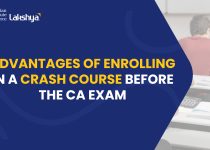A Comparative Analysis of the CA Programs and Practices in Different Countries
Introduction
In today’s globalized economy, the field of accountancy plays a crucial role in ensuring financial transparency and stability. Chartered Accountancy (CA) is a prestigious profession that is recognized and valued worldwide. However, the requirements, programs, and practices of becoming a Chartered Accountant can vary significantly across different countries. In this article, we will delve into the Chartered Accountancy programs and practices in various countries, providing a comparative analysis of their education, certification requirements, career prospects, and more.
Overview of Chartered Accountancy
Chartered Accountancy is a specialized profession that involves the measurement, analysis, and communication of financial information to help businesses and organizations make informed decisions. Chartered Accountants possess a deep understanding of financial accounting, auditing, taxation, and business advisory services. They play a critical role in ensuring compliance with financial regulations and providing expert financial advice.
Chartered Accountancy in the United States
Education and certification requirements
To become a Certified Public Accountant (CPA) in the United States, individuals must typically complete a bachelor’s degree in accounting or a related field. Subsequently, they need to pass the Uniform CPA Exam administered by the American Institute of Certified Public Accountants (AICPA). Additional state-specific requirements, such as work experience and ethics exams, may also apply.
Professional bodies and regulatory authorities
In the United States, the AICPA is the primary professional organization for accountants. It sets ethical standards, develops accounting guidelines, and offers various specialized certifications. State boards of accountancy regulate the CPA profession and grant licenses to qualified individuals.
Career opportunities and salary prospects
A CPA in the United State have a wide range of career opportunities, including working in public accounting firms, corporate finance departments, government agencies, or as independent consultants. The salary prospects for CPAs in the United States are generally favorable, with experienced professionals earning competitive salaries.
Chartered Accountancy in the United Kingdom
Education and certification requirements
In the United Kingdom, aspiring chartered accountants typically pursue the Association of Chartered Certified Accountants (ACCA) qualification or the Institute of Chartered Accountants in England and Wales (ICAEW) qualification. These qualifications require completing a combination of professional exams and relevant work experience.
Professional bodies and regulatory authorities
The ACCA and ICAEW are the leading professional bodies for chartered accountants in the UK. They ensure professional standards, conduct examinations, and regulate the profession. The Financial Reporting Council (FRC) oversees the regulatory framework for the accountancy profession in the UK.
Career Opportunities and salary prospects
Chartered Accountants in the UK have diverse career opportunities, ranging from working in public practice, industry, or the public sector to pursuing careers in financial management, forensic accounting, or taxation. The salary prospects for chartered accountants in the UK are generally competitive, with experience and qualifications playing a significant role.
Chartered Accountancy in Canada
Education and certification requirements
In Canada, the Chartered Professional Accountant (CPA) designation is the recognized qualification for Chartered Accountants. Individuals typically complete a bachelor’s degree in accounting or a related field and then pursue the CPA program, which includes rigorous exams and practical experience requirements.
Professional bodies and regulatory authorities
The CPA Canada is the national organization that represents the chartered accountancy profession. It sets professional standards, conducts examinations, and regulates the profession’s practice. Provincial CPA bodies grant the CPA designation and oversee the profession within their respective jurisdictions.
Career opportunities and salary prospects
Chartered Accountants in Canada have excellent career prospects, with opportunities in public accounting firms, corporations, government agencies, and nonprofit organizations. The salary prospects for CPAs in Canada are generally competitive, with factors such as experience, industry, and location influence earning potential.
Chartered Accountancy in Australia
Education and certification requirements
In Australia, the Chartered Accountants Australia and New Zealand (CA ANZ) designation is highly regarded. To become a chartered accountant, individuals typically complete a relevant degree and then undertake the CA ANZ program, which combines professional exams and practical experience.
Professional bodies and regulatory authorities
CA ANZ is the professional body that represents chartered accountants in Australia and New Zealand. It sets ethical standards, conducts examinations, and provides ongoing professional development opportunities. The Australian Securities and Investments Commission (ASIC) regulates the accounting profession.
Career opportunities and salary prospects
Chartered Accountants in Australia have diverse career paths, including working in public practice, industry, financial services, or the government sector. The salary prospects for Chartered Accountants in Australia are generally attractive, with experienced professionals earning competitive salaries.
Chartered Accountancy in India
Education and certification requirements
In India, the Institute of Chartered Accountants of India (ICAI) administers the Chartered Accountancy course. The course consists of three levels: the CA Foundation level, Intermediate level and the Final level. Candidates must also complete a 3 year period of Articleship before attempting the Final Exams .
Professional Bodies and regulatory authorities
The ICAI is the statutory body responsible for regulating and developing the chartered accountancy profession in India. It conducts examinations, sets standards, and regulates the profession’s practice.
Career Opportunities and salary prospects
Chartered Accountants in India have numerous career opportunities, including working in public practice, industry, finance, taxation, and auditing. The salary prospects for Chartered Accountants in India can vary significantly based on factors such as experience, location, and the employing organization.
Chartered Accountancy at Lakshya
In India, IIC Lakshya is an esteemed institution that provides comprehensive training and guidance to aspiring chartered accountants. Their CA program follows the curriculum set by the ICAI and prepares students for the rigorous examinations and practical training required to become Chartered Accountants. IIC Lakshya emphasizes academic excellence, expert faculty, and personalized mentoring to nurture the skills and knowledge needed for success in the field of accountancy.
Chartered Accountancy in South Africa
Education and certification requirements
In South Africa, the South African Institute of Chartered Accountants (SAICA) oversees the Chartered Accountancy profession. To become a Chartered Accountant, individuals typically complete a relevant degree, followed by a three-year training contract with an accredited training office. They must also pass the SAICA Qualifying Examination.
Professional Bodies and regulatory authorities
SAICA is the professional body that regulates the Chartered Accountancy profession in South Africa. It sets professional standards, conducts examinations, and provides ongoing professional development opportunities.
Career Opportunities and salary prospects
Chartered Accountants in South Africa have diverse career opportunities, including working in public practice, commerce, or the public sector. The salary prospects for chartered accountants in South Africa are generally competitive, with experience and industry specialization playing a significant role.
Comparative Analysis of Chartered Accountancy Programs
When comparing the Chartered Accountancy programs across different countries, several factors come into play.
| Country | Curriculum and Course Structure | Examination Processes | Global Recognition and Mobility |
| United States | Emphasizes a broader business education alongside technical accounting skills | Rigorous Uniform CPA Exam administered by the AICPA | Strong global recognition, allowing CPAs to practice and pursue opportunities in multiple countries |
| United Kingdom | Combination of professional exams and relevant work experience | ACCA and ICAEW qualifications with comprehensive exams | Well-regarded qualifications, providing opportunities for international practice |
| Canada | Bachelor’s degree in accounting or a related field followed by the CPA program | CPA program includes rigorous exams and practical experience requirements | CPA designation recognized in multiple countries, facilitating international career prospects |
| Australia | CA ANZ program that combines professional exams and practical experience | CA ANZ qualification with comprehensive exams | CA ANZ designation recognized globally, providing opportunities for international mobility |
| India | Completion of the ICAI Chartered Accountancy course, including exams at different levels and a period of practical training | ICAI examinations at each level, including CPT, IPCC, and Final exams | ICAI qualification is recognized nationally and has gained international recognition, enabling chartered accountants to work in various countries |
| South Africa | Relevant degree followed by a three-year training contract and passing the SAICA Qualifying Examination | SAICA Qualifying Examination as a requirement for qualification | Strong professional recognition within South Africa, with opportunities for international mobility depending on the country of qualification |
Challenges and Opportunities for Chartered Accountants in Different Countries
While the Chartered Accountancy profession offers numerous opportunities, it also presents challenges in different countries. These challenges can include increased competition, changing regulatory environments, technological advancements, and evolving client expectations. However, the profession also provides opportunities for growth, specialization, and international exposure.
Conclusion
Chartered Accountancy is a globally recognized and respected profession that plays a vital role in the financial well-being of organizations. While the programs and practices of becoming a Chartered Accountant vary across countries, the underlying objective remains the same: to produce highly skilled professionals capable of providing expert financial advice and ensuring financial transparency. Aspiring Chartered Accountants should carefully consider the education, certification requirements, and career prospects in different countries to make informed decisions about their professional journeys.
FAQs
1. Is Chartered Accountancy the same in all countries?
No, Chartered Accountancy programs and practices can vary significantly across different countries. Each country has its own qualification requirements and regulatory framework.
2. Can a Chartered Accountant practice in multiple countries?
In many cases, Chartered Accountants can pursue opportunities in multiple countries. However, they may need to fulfill additional requirements, such as obtaining local certifications or meeting specific work experience criteria.
3. Which country has the most rigorous CA program?
The rigor of CA programs can vary, and it is subjective to compare them directly. However, countries like the United States, the United Kingdom, and Australia are known for their comprehensive and demanding programs.
4. How long does it take to become a Chartered Accountant?
The duration to become a chartered accountant varies depending on the country and the program. It typically takes several years, including education, examinations, and practical experience requirements.
5. What is the average salary of a Chartered Accountant?
The average salary of a Chartered Accountant can vary based on factors such as experience, qualifications, industry, and location. In general, chartered accountants have competitive earning potential in their respective countries.


